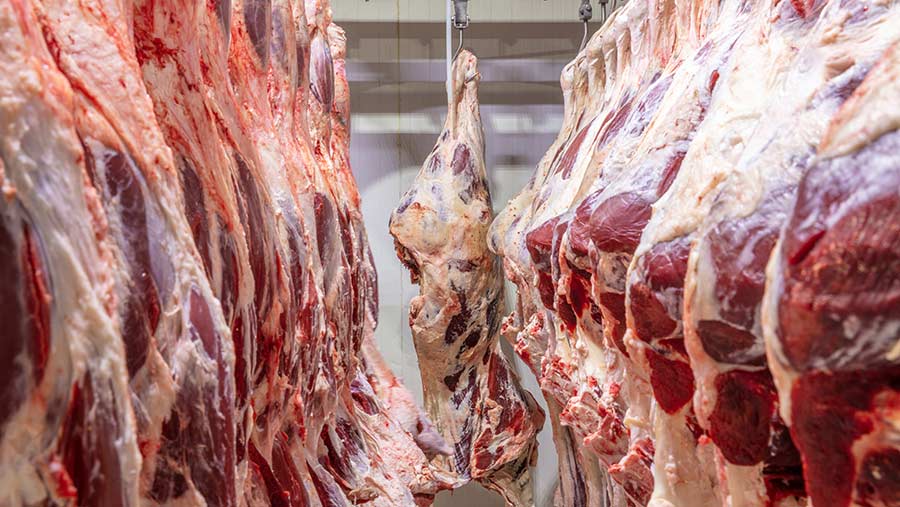UK meat jobs at risk as government pulls trade support
 © Mehmet/Adobe Stock
© Mehmet/Adobe Stock Jobs in the UK meat industry will be put at risk unless the government continues to meet the cost of certification for businesses moving product between Great Britain (GB) and Northern Ireland (NI), the sector has warned.
Since January 2021, costs associated with the certification needed to move meat between GB and NI for processing have been covered by the government’s Movement Assistance Scheme.
See also: Farmer involvement is key to red meat export effort
But this is set to close at the end of 2023, and with no successor scheme on the horizon, those costs will have to be met by business, which for some could mean a bill running into “hundreds of thousands of pounds” a year.
Peter Hardwick, trade policy adviser at the British Meat Processors Association (BMPA), urged the government to act to protect the industry.
Giving evidence to a House of Lords committee on the Northern Ireland Protocol last week, he said: “It isn’t a question of just about politics, it is about jobs.
“Many of those GB businesses are supplying their own sites in NI. They will have to decide where they are going to do that processing, given they are going to have to bear this extra cost and extra complexity.
“I would urge that more work is done in that area to try and ease that burden, because without it, we face more hardship in the future than we currently do because those costs will fall on our businesses.”
The BMPA said it would continue to press the government on how it proposed to deal with these extra costs to trade after the current scheme ended on 31 December.
Latest figures show the industry is already under pressure, with the most recent snapshot from the Food and Drink Federation showing a 23% decline in volumes of beef and pork exported from GB, compared with the same period in 2022.
Nan Jones, technical policy manager at BMPA, said the rise in the price of UK cattle, exacerbated by added red tape to send goods to the EU, was to blame for the drop.
“The loss in volume reflects the difficulties of Brexit and the added red tape and cost it brings with our nearest market,” she said.
“This is demonstrated by the fact that, even though values have increased, mainly due to inflation, the volume of red meat exported has never recovered to pre-Brexit levels.”
A Defra spokesman said: “We are aware of the importance that the scheme has in mitigating the costs associated with inspections and certificates and we are looking at further support we can offer to those working in the meat industry beyond this date.”
